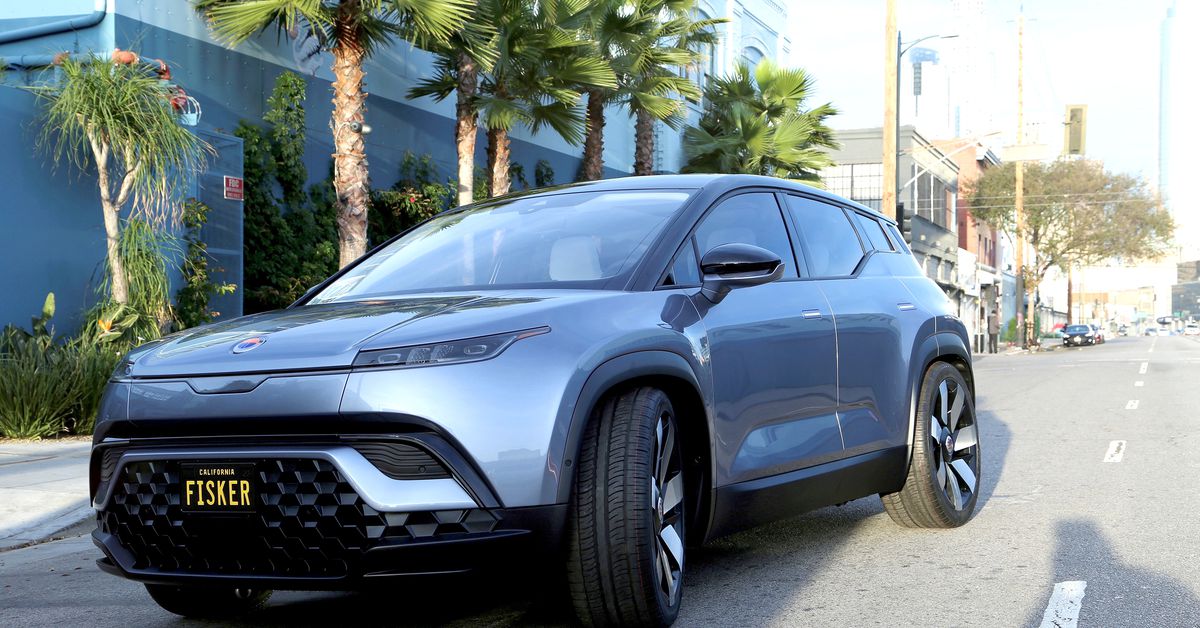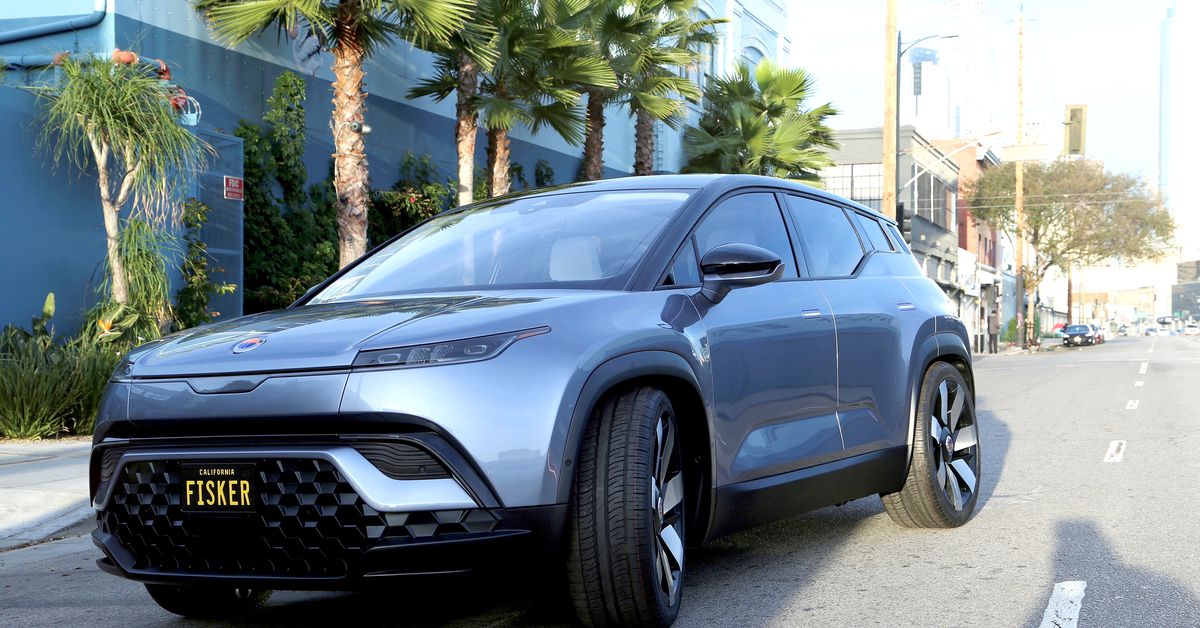
Fisker Inc. and Karma Automotive, two electric vehicle startups with a long shared history, each announced this week that they’ve raised millions of dollars. Fisker has taken in $50 million of fresh capital from “hedge fund king” Louis Bacon and Karma Automotive has raised $100 million from undisclosed “outside investors.”
The money comes at a time when there appears to be renewed interest in funding money-hungry electric vehicle startups, thanks in large part to Tesla’s skyrocketing stock price and the early success of hydrogen trucking company Nikola’s recent public listing.
Fisker Inc. wants to take the same shortcut to being public that Nikola used
In fact, Fisker Inc. is considering following in Nikola’s footsteps and becoming a publicly-traded company via a reverse merger, a person familiar with the deal tells The Verge. The startup is in talks with Apollo Global Management to merge with the private equity firm’s publicly-listed “blank check” company, known as Spartan Energy Acquisition Corp. Spartan was set up in 2018 as a way for Apollo to field an investment in the energy industry, and only has until August 14th to acquire a company or else it will be dissolved, with investors and shareholders getting their money back. (The people running Spartan are trying to extend this date until February 2021, according to a recent filing.) News of the talks between Fisker Inc. and Apollo Global Management was first reported by Reuters.
“Special acquisition companies” like Spartan have become increasingly popular in the last year or so, especially after a number of high-profile companies ran into trouble while taking the traditional route to becoming publicly-traded. After Uber and Lyft went public last year, the share price of each immediately fell, and both companies’ stocks are still trading below the original price. WeWork, meanwhile, totally imploded as a result of the scrutiny of the so-called “roadshow” series of meetings that banks set up with investors before taking a company public. By merging with Spartan, Fisker Inc. could sidestep some of those issues and more quickly access the public markets to raise some of the massive amount of cash required to make a car.
In the meantime, it has $50 million of new money coming in from Louis Bacon’s investment firm, Moore Strategic Ventures, LLC. That’s more than triple the amount of money Fisker Inc. had previously raised from the venture arm of construction company Caterpillar and the family behind oil drilling company Schlumberger.
Fisker Inc. only just unveiled its electric vehicle, the Ocean, in January at the 2020 Consumer Electronics Show. The SUV is supposed to get around 300 miles of range on a full charge. But it won’t be a performance beast like a Tesla. Instead, Fisker Inc. founder Henrik Fisker has said the Ocean will be all about environmental sustainability.
Henrik Fisker started Fisker Inc. a few years ago, and originally planned to make an electric luxury car before shelving that plan in favor of the Ocean. The company is separate from Fisker Automotive, which he founded way back in 2007, and became known for the Fisker Karma hybrid sports car. Problems with the battery system and a fight with the Department of Energy over a loan ultimately doomed Fisker Automotive, which went bankrupt in 2013.
Many of the assets from Fisker Automotive were bought out of the bankruptcy process by a Chinese company called Wanxiang, which revived the Karma project (without Henrik Fisker’s involvement) under a new brand: Karma Automotive. That startup has, in the years since, sold a Karma-based hybrid sports car known as the Revero. Karma Automotive has shared ambitions to build all-electric vehicles as well as sell the underlying technology, but has struggled mightily over the last year or so, laying off hundreds of employees.
Now, though, the company says it has raised $100 million and is seeking to raise $300 million more. Karma Automotive didn’t disclose who the new investors are, but Bloomberg reports that Wanxiang is looking to sell stakes to US-based private equity firms. This would help reduce the Chinese ownership to below 50 percent in order to make selling to government fleets more politically palatable.
Not all EV startups are thriving
While the enthusiasm around Tesla and Nikola may have helped knock some money loose for Fisker Inc. and Karma Automotive, plenty of other EV startups with a presence in the US are still struggling. Chinese EV startup Byton, which has a North American headquarters in Silicon Valley, recently announced it is halting all global operations for six months because of money trouble. Los Angeles-based Faraday Future is still in limbo, though its founder just wrapped up his personal bankruptcy case, and the startup says it will now be able to entertain investors who may have been skittish. Seres, née SF Motors, has all but fallen off the map after making a modest splash in Silicon Valley a few years ago.
A few lucky ones, like Rivian, Lucid Motors, and Nio were able to nail down big financing rounds before the pandemic. Though in the case of Lucid Motors, the startup had to give up majority control to Saudi Arabia. And in exchange for its own sort of bailout, Nio had to turn to state-owned entities in China.
